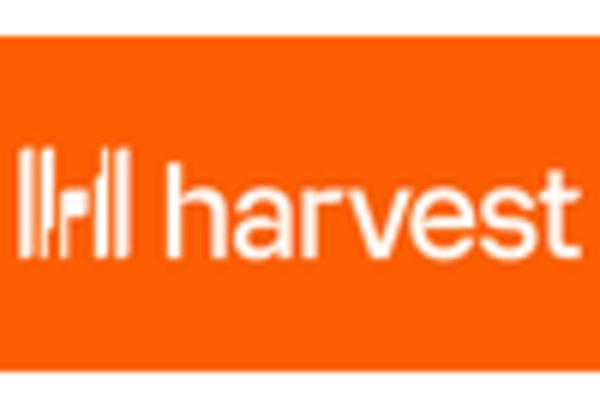Market Analysis
In-depth Analysis of Time Tracking Software Market Industry Landscape
The global time tracking software market reached USD 2,442.5 MN in 2022 and is poised to grow to USD 11,452.6 MN by 2032, registering a 16.7% CAGR during the review period (2023-2032). The Time Tracking Software market is experiencing dynamic shifts driven by an increasing need for efficiency and productivity across diverse industries. This burgeoning market is propelled by the evolving nature of work, where remote and flexible arrangements have become the norm. As businesses adapt to these changes, the demand for accurate and automated time tracking solutions has surged.
One of the key drivers shaping the market dynamics is the emphasis on optimizing resource utilization. Organizations recognize the importance of tracking employee time not just for payroll purposes but also for project management and performance analysis. Time tracking software has evolved beyond simple clock-in and clock-out functionalities; it now offers sophisticated features such as task categorization, project allocation, and real-time reporting. This expanded functionality caters to the nuanced needs of businesses, enabling them to make informed decisions based on comprehensive data. Furthermore, the global nature of business operations has intensified the demand for cloud-based time tracking solutions. These solutions provide real-time accessibility, allowing employees to log their hours and managers to monitor progress from anywhere in the world.
This shift towards cloud-based platforms has also opened up opportunities for small and medium-sized enterprises (SMEs) to adopt advanced time tracking tools that were once considered exclusive to larger enterprises. In addition to cloud-based solutions, the integration of AI and ML technologies has become a defining factor in the market dynamics. These technologies enhance the accuracy of time tracking by automating routine tasks, learning from patterns, and providing predictive insights. As the software becomes more intelligent, it not only streamlines timekeeping processes but also contributes to a proactive approach in resource management. Businesses are increasingly recognizing the value of AI-powered time tracking in predicting project timelines, identifying bottlenecks, and ultimately improving overall operational efficiency.
The competitive landscape of the Time Tracking Software market is marked by a multitude of vendors offering a diverse range of solutions. Established players continue to enhance their offerings through regular updates and feature additions, aiming to stay ahead in this rapidly evolving market. Simultaneously, new entrants are entering the arena with innovative solutions, challenging the status quo and fostering healthy competition. These scenario benefits end-users as they have a plethora of options to choose from, encouraging vendors to continually improve their products to meet the evolving needs of businesses. However, the market is not without challenges. User resistance to adopting time tracking tools, concerns about privacy and data security, and the learning curve associated with new technologies pose hurdles to widespread adoption. Vendors must address these challenges by providing user-friendly interfaces, robust security measures, and comprehensive training and support.

















Leave a Comment